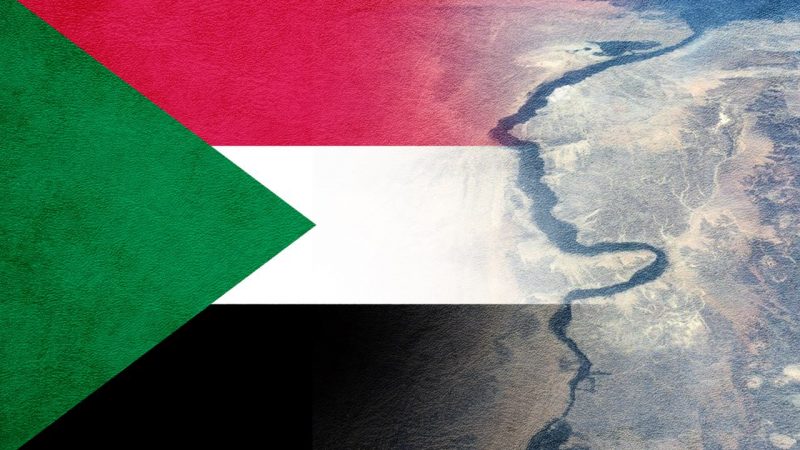Most observers today ask whether the zero hour of the first water war is upon us, after the rapid developments in the positions of the three countries, Egypt, Ethiopia and Sudan on the issue of the Renaissance Dam.
Will Ethiopia force Egypt to carry out the first strike of the African water wars?
Egyptian preparedness
Egyptian President Abdel Fattah El-Sisi directed, during his recent meeting with the army leaders, to show the utmost readiness to protect Egypt’s national security.
This meeting coincided with an important development related to Ethiopia’s announcement of its intention to fill the Renaissance Dam without an agreement with the downstream states of Egypt and Sudan in violation of the Declaration of Principles signed in 2015, which stipulates reaching rules regulating the first filling of the dam, as well as the rules of its operation.
In light of this development, the Egyptian President’s meeting with army leaders left observers in confusion as to whether Cairo was going to implement a limited military operation to prevent Addis Ababa from storing water before getting guarantees for not damaging Egyptian water security.
Whatever the observers’ confusion, the issue of the Ethiopian dam is the most threatening to Egyptian national security, because the life of Egypt and its people is contingent upon it.
Water war on the Nile: Can Sudan bring Egypt and Ethiopia to the negotiating table?
Options have narrowed
While the options are wide open for Egypt in terms of dealing with most national security problems, the problem of the Renaissance Dam has become so complicated that the options remaining are extremely risky.
With the Egyptian state concluding that Ethiopia bought the time to complete the construction of the dam by taking advantage of the goodwill with which Egypt has handled the issue since its acceptance of the Declaration of Principles in 2015, Cairo decided earlier this month to file a complaint with the Security Council.
The Egyptian complaint to the Council was only an attempt to establish a convincing argument against Ethiopia, in which Cairo presented the developments of the Renaissance Dam issue and the stages of negotiations and Egypt’s flexible positions, and its desiring to settle this issue in a fair and balanced manner to the three parties concerned, and to ensure the sustainability of security And stability in the region.
The Ethiopian Dam: a game bigger than generating electricity
A shift in the Sudanese position
There has also been a shift in the position of Sudan, which had long been seen as closer to the position of Addis Ababa.
The Sudanese Ministry of Irrigation and Water Resources announced that Khartoum has rejected an Ethiopian proposal to sign a partial agreement on filling the Lake of the Renaissance Dam, which Addis Ababa is unilaterally planning to do next July.
The Ministry’s statement justified the stance that no partial agreement can be signed regarding the first stage due to the technical and legal aspects related to coordination, data exchange, dam safety, and environmental and social impacts.
At the same time, Sudanese Prime Minister Abdullah Hamdouk stressed the need to reach a tripartite agreement between Sudan, Egypt and Ethiopia, stressing that the way to reach a comprehensive agreement is the immediate resumption of negotiations.
With the Egyptian waving of escalation through international institutions, Sisi’s order to the army to be ready, and Ethiopia’s insistence on unilaterally filling the dam and its deploying anti-aircraft missiles near the dam, it seems that we are within a stone’s throw from the outbreak of the first water war.
But this complexity may promise a solution other than war as well, if we read well the shift in the Sudanese position to be due to the fact of its being a party that defends its national security and interests, instead of showing clear bias to the Ethiopian side.
The shift of Khartoum’s position shows it is attempting to promote its interests and security would prevent the escalation of the Egyptian and Ethiopian positions. Their positions that are as follows:
Egypt believes it has legal and historical rights to the river, and that ceding them may write the most painful and tragic chapters in its history. It also sees that the flexibility and goodwill it has shown in the face of Ethiopian claims have not paid off, and that it is time to confirm that it will defend its right to life with its entire power.
Ethiopia sees itself as having sovereign right in the dam and it is determined to fill it without being restricted by an agreement.
Sudan’s position during the rule of President Omar al-Bashir was closer to the Ethiopian position on the dam issue, against the backdrop of promises from Addis Ababa to provide Khartoum with the electricity it needs from the energy generated from the dam. The Sudanese ruling regime was promoting the idea that the dam would regulate water of the river that reaches Sudan, ensuring that it will benefit fully from its share rather than losing it. The position of the Bashir regime was more political than one based on real interests that take national security into account internal political gains from antagonizing Egypt over this issue and the issue of the Halayeb and Shalatin Triangle (an Egyptian land that Sudan claims to have rights to).
With the change of the political system in Sudan, voters called for a need to review the viability of the dam. Therefore, the Sudanese position began to pay attention to the danger of a large dam of this capacity a few kilometers away on its borders.
The collapse of one of the gates of the Ugandan “Owens-Nalubaale” dam, which resulted in the flooding of dozens of villages in Uganda, was a warning bell for the possibility of a catastrophe for the Sudanese, in case something similar happens in the huge Ethiopian dam, very close to the Sudanese border.
The Sudanese scrutiny of the dam’s safety issue concluded that adjusting its specifications to 7 times the capacity, type of soil, and highly volatile and cracked Ethiopian volcanic rocks may cause its collapse, as happened in the partial collapse of the “Tekeze” dam only ten days after its opening.
Also, the accumulation of sedimentary materials near the dam will lead to a continuous decrease in living storage capacity, thus reducing energy production, and thus the difficulty of exporting the quantities needed by Sudan.
On the other hand, the accumulation of sedimentary materials may increase the risk of floods in the near future in the region in general and in Sudan in particular.
A win-win solution
The Sudanese position, biased toward Ethiopia, was putting great pressure on the nerves of the Egyptian decision-maker in the management of the issue. This position was luring the Ethiopians with more intransigence in facing Cairo.
With the shift in the Sudanese position, Khartoum has achieved equilibrium between Egypt and Ethiopia, imposing on both parties to suggest creative solutions that guarantee the minimum interests without harming Egypt’s right to life and Ethiopia’s right to development, and in a way that guarantees the protection of Sudan as well.
The value of this shift enables the conflict to return to its true nature: a struggle on technical, economic and legal aspects that guarantees everyone’s rights, and away from the dreams of political domination.
Over the past few years, Ethiopia has managed to turn the dam issue into a political issue by seducing the country’s citizens that the issue is the key to life in eastern Africa. Successive governments used this as a game, mixing religious myths with political aspirations, without the rules of international law or the language of cooperation playing a role.
But with the real objectives of the dam exposed, the absence of its economic viability, and the weakening of its safety factors, the three parties must return to negotiations again, and everyone should be convinced of the importance of reaching win-win solutions.
The real political victory is to protect the rights of the people of the Nile Basin to life… but betting on the impossibility of the opponent’s resorting to war is one of the reasons war might actually occur.
There is still an opportunity to avoid the outbreak of the first water wars in the modern era if everyone is able to take a new path to end the outstanding differences with realism and responsibility to protect the safety and the life of the citizens of the Nile Basin.









Leave a Reply